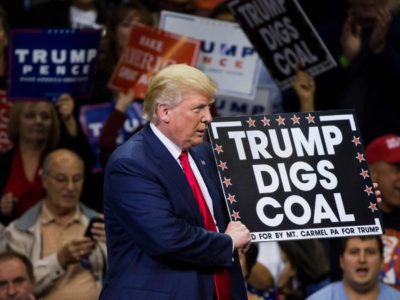Carbon Vouchers: A Small-Government Approach to Climate Action
How to limit climate change without giving the Feds enforcement powers or revenue.
What I’m going to sketch here isn’t a zero government approach. But the government’s role is very limited: federal agencies don’t do any enforcement and the government doesn’t touch any revenue from the scheme. So this approach deals with the concern that a carbon tax or something similar would either expand EPA’s ability to abuse its enforcement powers, micromanage businesses, or bloat government revenues.
The core of the scheme is that ordinary individuals receive carbon vouchers. If firms want to use fossil fuels themselves or sell those fuels to consumers, they need to acquire a corresponding number of GHGs. If anyone figures out a way to capture and sequester carbon economically, those emissions could be exempted from the scheme.
The biggest role of the federal government is to set the number of vouchers and issue them directly to the public on a per capita basis. States can choose to take over the issuance role (though not setting the total number). There might be a clever way to outsource issuance entirely to the private sector while ensuring accuracy, but I haven’t tried to come up with that. People would probably broker their carbon vouchers through intermediaries rather than dealing directly with the firms who need them; banks or public utilities might well be given that role. Firms are required to post their voucher lists and their carbon usage on the Internet. To ensure revenue neutrality, firms can deduct the expense of the vouchers and consumers pay tax on the sales.
It’s easy to imagine temptations to cheat. In order to avoid the need for EPA or even state government enforcement, we could borrow a leaf from the anti-trust laws, allowing competitors of the firms to sue them for three times the market price of the vouchers (plus attorneys fees) for violations: (a) posting invalid vouchers, (b) under-reporting emissions, or (c) simply failing to have enough posted vouchers to cover posted emissions. Alternatively, maybe state governments could be allowed to sue on behalf of their citizens for the missing voucher payments.
This scheme isn’t the libertarian ideal since in the end the government is imposing a cap on emissions. But it limits the government’s role about as much as possible given that we do, after all, need to reduce emissions.
I would personally prefer a carbon tax coupled with either a dividend or an offsetting reduction in income taxes. But small-government advocates may fear that the original deal wouldn’t stick and that the government would end up getting its hand on additional revenues. Or they may be afraid that EPA enforcement would be abused and would simply add to the government’s overall enforcement muscle. These possibilities don’t worry me, but I could probably live with something like this alternative scheme if it would broaden support for climate action.






Reader Comments